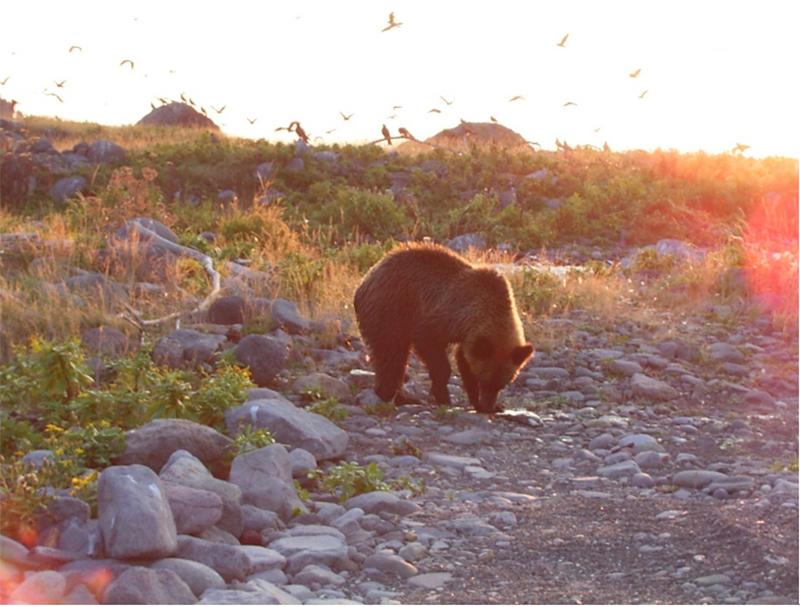Summary
Brown bears are opportunistic omnivores that flexibly change their feeding habits depending on the availability of dietary resources. A research team led by Jun Matsubayashi, a student at the Graduate School of Science, Kyoto University, and a Center Research Associate at the Research Institute for Humanity and Nature; Associate Professor Junko Morimoto of the Laboratory of Forest Ecosystem Management, Graduate School of Agriculture, Hokkaido University; and Professor Ichiro Tayasu of the Research Institute for Humanity and Nature, measured carbon, nitrogen, and sulfur stable isotope ratios of bone collagen of brown bears in the Hokkaido Islands of Japan, and presented a historical record of major alterations in their feeding habits. Hokkaido brown bears used to feed on animal matter such as salmon and deer, whereas modern bears depend on plant matter like herbs and fruits. These dietary shifts probably occurred in the last approximately 100-200 years, which coincides with the beginning of modernization in this region.
This study was published in Scientific Reports on 17 March 2015.

Figure 1: A brown bear eating salmon at Shiretoko peninsula (photo by Takahiro Nometsu; Shiretoko Nature Foundation).
Full article
Paper information
[DOI] http://dx.doi.org/10.1038/srep09203
[KURENAI access URL] http://hdl.handle.net/2433/196586
Jun Matsubayashi, Junko O. Morimoto, Ichiro Tayasu, Tsutomu Mano, Miyuki Nakajima, Osamu Takahashi, Kyoko Kobayashi & Futoshi Nakamura
"Major decline in marine and terrestrial animal consumption by brown bears ( Ursus arctos )"
Scientific Reports 5, Article number: 9203 Published 17 March 2015





